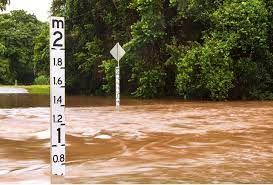Complaints about insurance companies during floods skyrocket amid calls for reform
Luke Williams
06 January 2024, 2:40 AM
 Namoi Village near Walgett was urged to evacuate following fears flood water would cause a sewerage breakdown in late 2022. (Image: NSW SES)
Namoi Village near Walgett was urged to evacuate following fears flood water would cause a sewerage breakdown in late 2022. (Image: NSW SES)Australia’s insurance industry has been criticised for its ill-preparedness when it comes to natural disasters, as complaints about the industry were found to have increased markedly throughout the flood-ravaged years of 2022 and 2024.
The Australian Financial Complaints Authority (AFCA) received 3,477 complaints relating to the major floods between 1 February 2022 and 30 September 2023.
In 2022-23 the AFCA received 27,924 general insurance complaints, an increase of 50% compared to the preceding year.
Most of the complaints related to delays or rejection of claims.
The spike in complaints has led the AFCA to call for change.
“Reference is often made to natural disasters as one-off events," the AFCA wrote in its submission to the Inquiry into insurers' responses to 2022 major floods claims through the federal House of Representatives.
"However, the reality of climate change and land use patterns in Australia means these events will likely become more common and continue to have significant effects on Australian communities.”
The AFCA called for “immediate and enduring increases in resourcing of claims and complaints resolution teams within general insurers to respond to the demands on these functions” and for "Insurers to improve their communications with insurers about claim progress, particularly those who have been affected by natural disasters, recognising the particular trauma and uncertainty that these consumers will be experiencing”.
It further stated that there needed to be general improvements in practices and systems relating to the use and reliance on expert reports in flood events.
The Australian Consumers Insurance Lobby (ACIL) wrote in its submission that a key area requiring improvement was insurers' preparedness for events of this magnitude.
“The scale of the flooding caught many insurers off-guard, resulting in delays in processing claims and challenges in adequately estimating the extent of damage," ACIL said.
"Furthermore, shortages of skilled tradespeople, hydrologists, and assessors contributed to significant delays in assessments and claims settlements, leaving policyholders in a state of uncertainty and frustration.”

Floodwaters broke local records. (Image: Insurance Council of Australia)
Meanwhile, the Insurance Council of Australia (ICA) has reiterated the importance of flood mitigation spending to reduce the cost of claims for all involved and said that Government needed to do more.
The report highlighted that carefully targeted resilience investments of $250 million per annum have the potential to generate budget savings in the order of $12.2 billion for all levels of government (or $9.8 billion if looking at the Federal Government budget only).
It further proposed that if successfully implemented, Federal and State Government expenditure on natural disaster response could be reduced by more than 50% by 2050.
“Insurance provides financial protection against floods, but it is not a solution to flood risk," the ICA said.
"Addressing the risk of floods (and other natural hazards) in Australia should be a priority for all governments to keep people out of harm’s way and improve insurance affordability.”



